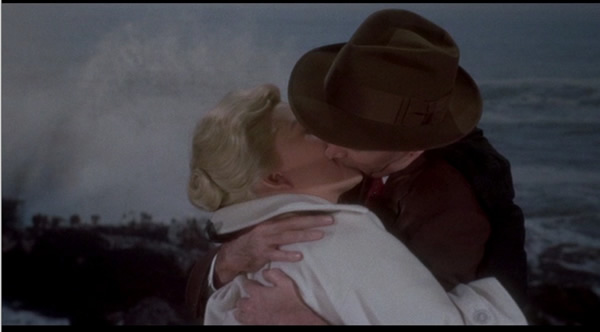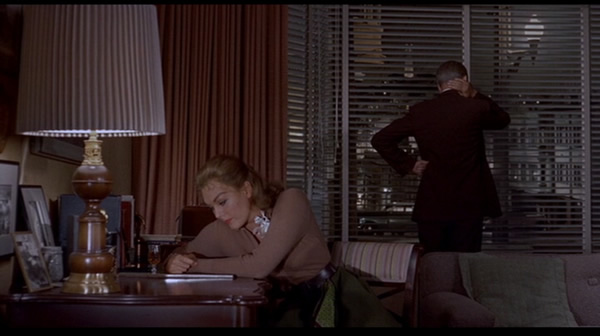Disliking Judy
The audience generally dislikes Judy because she disrupts our earlier identification with Scotty. Hitchcock is credited with creating “an illusion during the first half of the film, deconstructs the illusion by revealing the nature of the illusion,” playing an elaborate hoax on the audience (Raubicheck 164-165). He chooses to leave us hanging in suspense rather than give us a typical surprise. Hitchcock does this by a shocking revelation, in which Judy stares at the spectators and relives a flashback. Not only are we immediately cut off from Scotty by suddenly knowing much more about the situation than he does, but we are gazed at ourselves by the woman we have been watching the whole film. Raubicheck goes on to say Vertigo is a “statement about the way that genre affects the expectations of the spectator and about the process of the construction of the illusion” (164).

